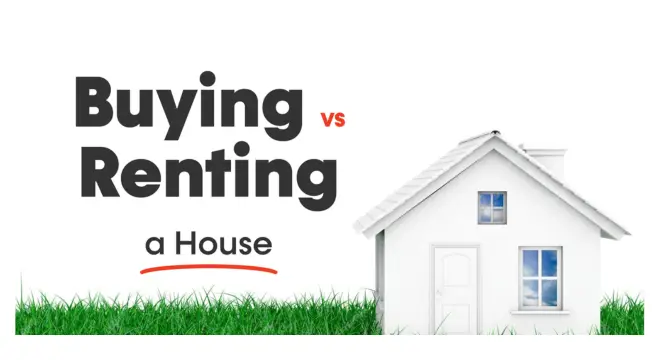US Housing Market Faces Pressure as Real Estate Investors Expand Hold
If you’ve been trying to buy a home this year, chances are you’ve either hit pause—or you’re feeling like the odds are stacked against you. And honestly, you’re not alone.
Home prices are still frustratingly high. Mortgage rates haven’t dropped the way many hoped they would. Meanwhile, listings are sitting longer, sales are falling, and yet… there’s one group that’s still buying homes like it’s 2020: real estate investors.
According to data from MPA MAG, investors made up over 26% of home purchases in 2025, a steep jump from the 18.5% average between 2020 and 2023. That’s not just a stat—it’s a signal. While everyday buyers are being priced out or scared off, investors are doubling down.
And they’re doing it with speed and strategy. Most are using cash or leveraging home equity, so rising mortgage rates don’t slow them down the way they do for first-time buyers or middle-income families.
But here’s where it gets more interesting—and maybe a little frustrating. These investor purchases aren’t just happening in luxury markets or big cities. They’re showing up in suburbs, starter-home zones, and places where you might be searching too.
It’s reshaping the market—and whether you’re buying, renting, or investing yourself, this shift impacts you.
So the real question now is: If investors are this active, what does that mean for the rest of us?
Let’s break it down.
Why Investor Activity Is Grabbing Headlines?
If you’ve been watching the housing market lately, you might’ve noticed a weird paradox: regular buyers are holding back, but investors are stepping up.
I dug into a CBS News report, and here’s what it says — investors aren’t just showing up… they’re taking over entire neighborhoods in some places. According to CBS, investors have been buying up homes at an aggressive pace, and in 2025, they’re playing an even bigger role than before.
You’re probably wondering — what kind of numbers are we talking about?
Well, between 2020 and 2023, investors made up around 18.5% of all home purchases. This year? They’ve surged past 26%, with some states seeing even higher activity. And the interesting part? It’s not just big institutions making these deals.
Most of these purchases are by small investors — everyday people with one to five properties. That means you’re not just competing with hedge funds… you’re often competing with someone just like you, except they’ve already bought before and they’re back for more.
If you’ve lost out on a house or watched one get snatched up quickly, there’s a real chance it was an investor — and this section helps you understand why.
And while investors hold strong, many first-time buyers are being squeezed not just by high prices but also by smaller home sizes and rising living costs — as Bank of America recently warned in their 2025 housing outlook.
What Gives Investors the Upper Hand Right Now?

Let’s be real — trying to buy a home in this market feels like trying to hit a moving target. Mortgage rates are high. Prices aren’t coming down fast enough. And just when you think you’re ready to make an offer, someone comes in with all cash and scoops it up.
I read a detailed analysis from Bankrate, and it spells out exactly why investors have the edge right now:
- Cash advantage: Most investors aren’t relying on loans. They’re using savings, private equity, or pulling from existing home equity. That makes their offers faster and more appealing to sellers.
- Low-risk mindset: Investors treat homes as assets, not emotional decisions. Even in a volatile market, they keep buying because they’re playing the long game.
- Hard asset security: In a shaky economy, real estate still feels “safe” to investors—just like gold. They’re buying because they see stability, not uncertainty.
And if you’re wondering why foreign investors haven’t backed off during all the political and economic chaos? Bankrate’s coverage explains that foreign buyers see U.S. real estate as a proven hedge, especially those who already deal with high-risk economies abroad.
So while you’re hoping rates dip or prices soften, investors are using that exact pause to buy more. That’s a hard reality, but if you understand it, you can plan your own move better.
In places like Florida, where unusual slowdowns are already surfacing, this inventory build-up is especially noticeable — but again, it’s the investors who are taking advantage.
Who Are These Investors, Really?
I’ll admit — when I first heard “investor,” I imagined some corporate giant with 1,000+ homes. But after looking at the data, the truth is surprising.
If you’re picturing Wall Street landlords buying up America, you’re only partially right.
According to Batch Data and various housing reports:
- 85% of investor-owned homes are held by people who own just 1 to 5 properties.
- Only 2.2% of investor homes are owned by institutions with over 1,000 properties.
That means you’re more likely to compete with a small-time landlord or a first-time investor, not just a giant fund. These buyers might be local, using their savings to grab a rental or flip opportunity while others wait.
Even more interesting — a large portion of current activity is being driven by foreign investors. Yuval Golan, CEO of Waltz, explained in a recent interview that 80% of foreign investors don’t live in the U.S., but they’re still buying aggressively.
These aren’t random buyers. They’re lawyers, entrepreneurs, and financiers who — if they were American — would have near-perfect credit. So when you’re up against that kind of profile, the playing field gets even tougher.
Conversations around foreign ownership and investor-driven trends are picking up across real estate forums and WhatsApp housing updates channels lately, especially among first-time buyers trying to decode these shifts.
What This Means for You — Buyer, Seller, or Agent
Let me speak to you directly — whether you’re buying, selling, or helping others do the same, this investor surge changes the game.
- If you’re a first-time buyer: You might feel boxed out. That’s fair. But don’t lose hope. Some markets are still stabilizing, and new construction might offer more flexible terms than resale homes.
- If you’re a seller: Investors can be your best friend. They move fast, don’t nitpick, and usually skip inspections. But… they also bargain hard. Know your home’s true value.
- If you’re a real estate agent or investor: This market’s working for you — if you understand the cash flow and timing side of deals. Investor clients are steady even when families back off.
The bigger message here? You can’t treat 2025 like any other year. The dynamics have shifted. And if you’re still thinking like it’s 2020, you’ll miss the window to adapt.
What’s your take on this shift? Are investors making it harder for you to buy, or is this just part of the market cycle? Drop your thoughts in the comments — let’s talk about it.
Inventory Is Rising — But It’s Not Helping the Way You’d Think

You’d expect that with homes sitting longer and buyers pulling back, prices would start falling. But that’s not happening — at least, not the way you hoped.
Here’s what I found:
- New home sales dropped 13.7% in May — the biggest monthly drop since May 2022.
- At the same time, inventory is building, especially in mid-tier and higher-end segments.
- But instead of helping buyers like you, this slowdown is giving investors more selection.
Why? Because they’re not worried about interest rates. They’re paying cash, or using their current properties to finance new ones. Meanwhile, traditional buyers are waiting on the sidelines, hoping for rates to dip.
And here’s the kicker: builders are offering incentives — but prices are still up. Median new home price climbed 3% YoY to $426,600 in May 2025. That’s the first annual price increase of the year.
This trend lines up with what we’ve already seen: first-time buyers are stalling, while the rental market booms and investor interest keeps climbing.
Where Policy Might Shift—and What You Should Watch
Let me be honest with you—what’s happening in the housing market right now isn’t just about interest rates or investor money. There’s also pressure building on the policy front.
I’ve been tracking a few key developments that could impact your plans:
- Rent control debates are heating up in cities like New York, Portland, and parts of California.
- Some states are weighing tax limits on foreign ownership, especially where out-of-country buying is fueling price hikes.
- There’s even talk about a federal ownership cap for institutional investors—but nothing concrete yet.
If you’re investing, I suggest you keep a close eye on any local legislative proposals. If you’re a buyer, especially in renter-heavy areas, those new laws could indirectly affect your home value or the rental market.
This section exists because policy doesn’t just shape headlines—it shapes your options.
Final Thoughts
I’ve read through dozens of reports, industry analyses, and expert takes to build this picture for you — and one thing is clear:
This isn’t just a housing slowdown. It’s a power shift.
Investors have the tools, the mindset, and the cash to navigate this moment. If you’re a buyer, that can feel frustrating. But if you understand the trends, you don’t have to sit on the sidelines forever.
Use this time to refine your strategy, research your region, and watch for local price shifts. Because whether you’re investing or trying to buy your first home, knowledge isn’t just power—it’s leverage.
Want to stay updated on housing shifts, buyer trends, and investor activity across different states? Visit our Real Estate & Homeownership section for more deep dives and expert-backed reports.
Disclaimer: This article is for informational purposes only and does not constitute financial or investment advice. Market trends and statistics cited are based on publicly available reports and data as of July 2025. Always consult a licensed financial or real estate professional before making major housing decisions.


